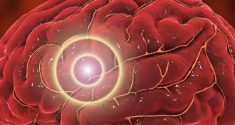People who sleep poorly are more likely than others to have a brain that appears older than it actually is. This is the result of a comprehensive study by the Karolinska Institute. Increased inflammatory activity in the body could partly explain this correlation.
Poor sleep is associated with dementia, but it is unclear whether unhealthy sleep habits contribute to the development of dementia or are rather early symptoms of the disease. In a new study, researchers from the Karolinska Institute have investigated the relationship between sleep characteristics and the apparent age of the brain in relation to its chronological age. The study included 27,500 middle-aged and elderly people from the UK Biobank who underwent magnetic resonance imaging (MRI) of the brain. Using machine learning, the researchers estimated the biological age of the brain based on over a thousand MRI brain phenotypes.
How Sleep and Brain are Connected
The brain plays a central role in sleep and influences it on several levels. The suprachiasmatic nucleus, which acts as an internal clock, is located in the hypothalamus. It registers light via the eyes and in this way controls our waking and sleeping rhythms, including by regulating hormones such as melatonin, which promotes tiredness. At the same time, the molecule adenosine accumulates in the brain during wakefulness, which creates what is known as sleep pressure: the more adenosine there is, the stronger the need to sleep. The reticular activating system in the brain stem keeps us awake, while the VLPO nucleus in the hypothalamus induces sleep. Various neurotransmitters play a role in this: GABA promotes relaxation and sleep, serotonin supports the sleep-wake rhythm and orexin keeps us awake – a malfunction can lead to narcolepsy.

Poor sleep can affect the brain in many different and sometimes profound ways. If we regularly get insufficient or poor quality sleep, the delicate balance of brain functions is thrown out of kilter. First of all, memory and the ability to learn suffer. During sleep, information is processed and stored in long-term memory: Facts and motor skills in deep sleep, emotional experiences and creative ideas in REM sleep. If this sleep is missing, new information is harder to retain and existing memories are more difficult to recall.
Emotional regulation is also disturbed. Chronic sleep deprivation increases irritability, anxiety and depressive symptoms because the brain is less able to process emotions and dampen stress reactions. In addition, cognitive performance suffers: concentration, attention, problem-solving ability and reaction time decrease. The brain works less efficiently and decisions are more impulsive or error-prone. Another important point is the “cleansing” of the brain via the glymphatic system. During deep sleep, waste products such as beta-amyloid and tau proteins are removed. These substances accumulate if we sleep poorly for long periods, which can increase the risk of neurodegenerative diseases such as Alzheimer’s. Poor sleep also affects brain structures themselves: Studies show that chronic sleep deprivation is associated with changes in areas such as the hippocampus (for memory) and the prefrontal cortex (for decision-making and impulse control).
Mild Inflammation
The sleep quality of the participants in the study was assessed on the basis of five self-reported factors: chronotype (morning or evening person), sleep duration, insomnia, snoring and daytime sleepiness. They were then divided into three groups: healthy (≥4 points), moderate (2-3 points) or poor (≤1 point) sleep. “The difference between brain age and chronological age increased by about six months for every 1 point decrease in healthy sleep score,” explains Abigail Dove, a researcher at the Karolinska Institute’s Department of Neurobiology, Nursing Science and Society, who led the study. “People with poor sleep had brains that were on average one year older than their actual age.”

Other possible mechanisms that could explain the link are negative effects on the brain’s waste disposal system, which is mainly active during sleep, or that poor sleep affects cardiovascular health, which in turn can have a negative impact on the brain. The UK Biobank participants are healthier than the general UK population, which may limit the generalizability of the results. Another limitation of the study is that the results are based on self-reported sleep data. The study was conducted in collaboration with researchers from the Swedish School of Sport and Health Sciences, Tianjin Medical University and Sichuan University in China.
Risk Factors for Premature Ageing of the Brain
By estimating people’s brain age from MRI scans using machine learning, a team led by researchers at UCL has identified several risk factors for premature brain ageing. They found that poorer cardiovascular health at age 36 predicted older brain age in later life, while men also tended to have older brains than women of the same age, they report in The Lancet Healthy Longevity.
Older brain age was associated with slightly worse scores on cognitive tests and also predicted increased brain shrinkage (atrophy) in the following two years, suggesting it could be an important clinical marker for people at risk of cognitive decline or other brain diseases. Lead author Professor Jonathan Schott (UCL Dementia Research Centre, UCL Queen Square Institute of Neurology) said: “We found that despite the very similar actual ages of all the people in this study, there were very large differences in how old the computer model estimated their brains to be. We hope that this technique could one day be a useful tool for identifying people at risk of accelerated ageing so that they can be offered early targeted prevention strategies to improve their brain health.”The researchers applied an established MRI-based machine learning model to estimate the brain age of participants in the Alzheimer’s Research UK-funded Insight-46 study, led by Professor Schott. Participants in the Insight-46 study were drawn from the 1946 UK birth cohort of the Medical Research Council’s National Survey of Health and Development (NSHD). As the participants had taken part in the study throughout their lives, the researchers were able to compare their current brain age with various factors from their entire life course. The participants were all between 69 and 72 years old, but their estimated brain age ranged from 46 to 93 years.

The researchers also found that older brain age was associated with higher levels of neurofilament light (NfL) protein in the blood. Elevated levels of NfL are thought to result from nerve damage and are increasingly recognized as a useful marker of neurodegeneration. Dr. Sara Imarisio, Head of Research at Alzheimer’s Research UK, said: “The Insight 46 study is helping to learn more about the complex relationships between the different factors that affect people’s brain health over their lifetime. Using machine learning, the researchers in this study have found further evidence that poorer heart health in midlife is associated with greater brain shrinkage in later life.”
Other Negative Factors
Premature ageing of the brain can also be promoted by other risk factors, which usually reinforce each other, e.g. diet plays a decisive role: high sugar and fat consumption, a lack of omega-3 fatty acids, vitamins or antioxidants can promote inflammation in the brain and reduce neuroplasticity. A lack of exercise is also harmful, as physical activity improves blood flow to the brain, stimulates the growth of new nerve cells and strengthens cognitive functions.
Chronic stress and prolonged mental strain lead to an overproduction of cortisol, which can damage particularly sensitive brain regions such as the hippocampus and the prefrontal cortex, impairing memory, learning ability and emotional regulation. In addition, smoking, excessive alcohol consumption and other drugs increase neuronal toxicity and promote inflammation, which increases the risk of cognitive decline and neurodegenerative diseases, while social factors and mental underchallenge also play a role: those who have few social contacts or are hardly challenged mentally offer the brain less stimulation, which can reduce cognitive performance. Finally, environmental factors such as air pollution or chronic exposure to heavy metals and toxic chemicals contribute to inflammation and damage to the brain.






